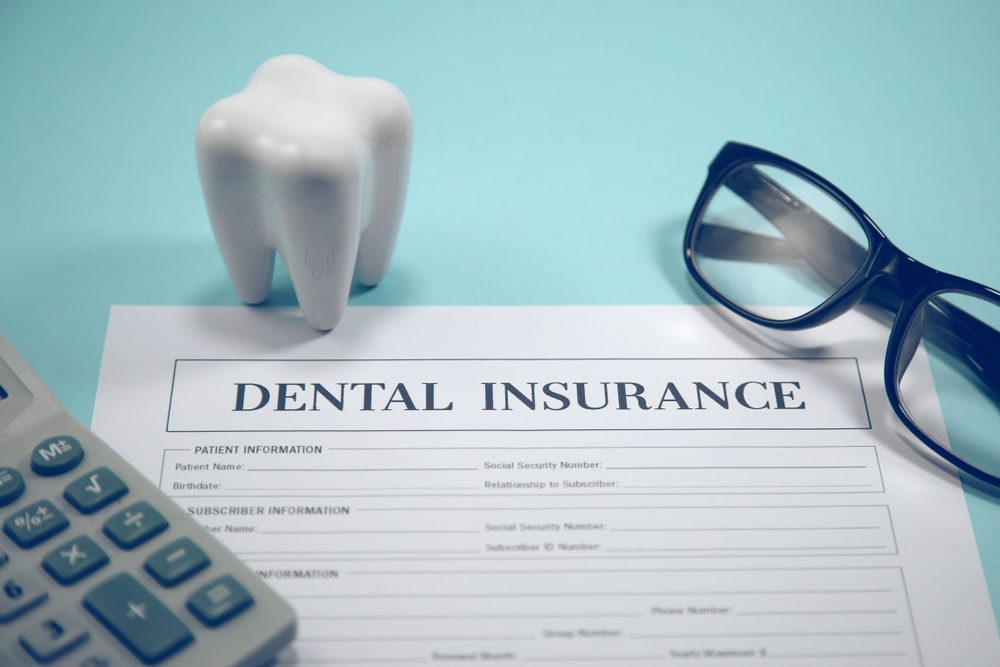Are you wasting money on insurance?
It gives you a sense of peace to know that you’re covered in case of an emergency or an unexpected incident. Insurance, at its best, helps protect against unfortunate events that could send your finances into a death spiral. Essential products include insurance against the loss of or damage to a house, serious car crashes, and the loss of income due to disability or death.
However, there are some kinds of insurance that you don’t actually need or that could simply be money down the drain. While insurance policies can provide security, it’s important to understand when it’s worth investing in coverage and when you’re wasting money on insurance.
Here are some types of insurance that might be a waste of money!

1. Credit life insurance
You may be offered credit life insurance when you take out a loan, such as a car or home loan. It pays all or part of your loan balance if you pass away. The beneficiary is your lender, not your family.
In some cases, it comes as a part of the loan and can’t be declined. However, most often, it’s an optional and separate purchase. The Federal Trade Commission informs consumers to take caution when lenders sneak it into a purchase without asking. That’s against the law.
The value of credit life insurance depends on the price and your situation. Is your mobility or health at risk, for example? Is your job insecure? Also, does it really cover all of your payments or only partial ones?
It’s essential to consider all these factors when purchasing a product of this type; otherwise, you may end up wasting money on insurance.
2. Cell phone insurance
If your mobile phone is very expensive and you’re super likely to lose it, cell phone insurance could be worth it. However, if you tend to drop your phone, you may be actually wasting money on insurance.
A better idea would be, for instance, to invest about $10 to purchase a shatterproof cell phone screen cover, which is tempered glass that’s very difficult to break.
In other words, unless you tend to drop your phone on the floor or in water, you probably don’t need insurance. The average cost is about $5 a month, and there’s typically a fairly high deductible.
If you’re still interested, you should check first to see whether your phone comes with a warranty and what it covers. Then make the decision based on these details.
3. Travel insurance
Travel insurance can be confusing. There’s protection against interrupted trips, canceled trips, medical expenses, and many other risks. Also, policies vary in coverage and quality. Some cover many possible risks, while others insure against a single eventuality, like a medical evacuation. But when does a product like this really help, and when you’re wasting money on insurance?
Travel insurance usually costs about 4% to 10% of the cost of the trip, depending on how comprehensive the coverage is. Personal finance experts urge people to look for loopholes and exclusions in policies.
There are several situations when you may be wasting money on insurance. If your policy is riddled with exclusions or doesn’t cover the risks you’re likely to encounter, the insurance will end up being a waste of money.
This also applies if you buy coverage for risks you aren’t likely to encounter. You may also be wasting money on insurance if you only stand to lose the cost of the flight cancellation fee.

4. Permanent life insurance
Life insurance is useful when people who rely on your income will deal with financial strain if you pass away. However, if you don’t need to leave a big chunk of money for a bequest or to pay off a mortgage, personal finance experts recommend you skip it because you may end up wasting money on insurance.
There are two main types of life insurance. There’s one that covers you for a specified period—10, 20, or 30 years, for instance. It’s the cheaper option by far. The second one covers you for life.
Basically, the insurance company takes a portion of the extra premium and invests it. That offers your policy a cash value, like a savings account. What you should know about this type of permanent life insurance is that it comes with high fees and high premiums.
If you’re rich and need to leave a big pile of cash to pay your estate taxes, permanent insurance may be exactly what you need. Otherwise, you may be wasting your money on insurance.
Read on to discover other ways you may be wasting money on insurance!
5. Critical illness insurance
About a third of workplaces provide critical illness insurance, which helps with high deductibles and other out-of-pocket medical expenses associated with treating certain acute illnesses. Employers don’t contribute to these plans. While the payments for basic policies are modest, so are the benefits. If you want extra coverage, you’ll have to pay more and also pass medical screening.
The problem with these policies is that you and the insurer may not agree on what’s a critical illness. Definitions are extremely specific, and exclusions can be less noticeable in the policy’s fine print. Moreover, payout amounts shrink as you grow older.
According to personal finance experts, most people are actually wasting money on insurance if they go with this type of coverage. Instead, they recommend those who have the discipline to save and a qualifying high-deductible medical plan open a health savings account.
There are no insurer’s definitions of illness to meet, and your tax-free savings are available for many more types of medical care. Another option would be to buy disability insurance to cover 60% or 70% of your earnings. It’s usually more expensive, but it covers many more eventualities, and you won’t be wasting money on insurance.
6. Extended warranties
Whether you’re purchasing a computer, TV, or hedge trimmer, odds are the salesman will suggest you buy an extended warranty. In most cases, you won’t need it, and you’ll be wasting money on insurance.
Products seldom break during the two- to three-year period after the maker’s warranty and service plan expire. Not to mention that the repairs can cost less than the large amounts you’re paying for the warranties.
According to Consumer Reports, stores keep 50% or even more of what they charge for extended warranty contracts, which is a significantly larger profit margin than they make selling the item. In some cases, the salesperson also receives a hefty cut on every warranty sold.

7. Dental insurance
If your employer offers you dental insurance, you’re golden. Otherwise, you may be wasting money on insurance. A plan can run $50 per month or more for benefits that top out at an average of $1,000 a year.
Don’t get it, thinking you’ll collect thousands of dollars worth of dental treatments. Your policy might just pay 50% for restorative care and oral surgery. Moreover, it may not cover cosmetic dentistry at all.
The issue is the yearly cap on payout. Dental plans haven’t increased their maximum payout over the years, even though the premium keeps rising.
8. Children’s life insurance
Adults get life insurance coverage for themselves to protect their families in the event they die. Arguments in favor of buying children’s life insurance include securing coverage for them at a young age in case it becomes too expensive or impossible to insure them later because of illness or playing high-risk sports, for instance. Some advocate insurance for funeral expenses and time off work for grieving.
According to personal finance experts, unless the family depends on the child’s income, there is no need to insure her or his life, as you’ll probably end up wasting money on insurance. A better alternative would be to open an investment account for the child or save for their education. If necessary, you could use those funds to cover their death expenses without giving a penny to insurers. If you want to learn more about investments, here’s a book that can help you understand the market better.
If you liked our article on ways you may be wasting money on insurance, you may also want to read 7 Hidden Home Expenses That Will Drain Your Bank Account.









2 thoughts on “8 Types of Insurance That Might Be Money Down the Drain”
I’ve had insurance on my iPhone 8 for seven yrs , 12 bucks a month , maybe I should cancel it ? but , you don’t need insurance till you need it …
Very much appreciate this vital information. It makes me think twice before buying some insurances.